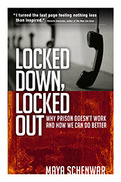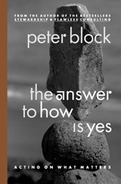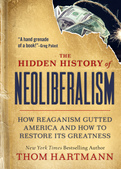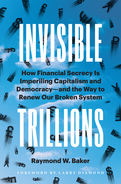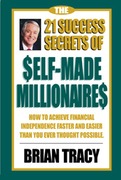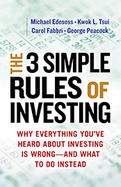- Winner of the 2001 Breakthrough Business Book of the Year award from Independent Publisher
- Written by the author of the bestselling books Flawless Consulting (more than 500,000 copies sold), The Empowered Manager (more than 250,000 copies sold), and Stewardship (more than 160,000 copies sold)
- Shows how our obsession with tools and techniques actually prevents us from doing things we believe in
- Identifies what is required of us to not only know what matters but to act on that knowledge
With four decades of neoliberal rule coming to an end, America is at a crossroads. In this powerful and accessible book, Thom Hartmann demystifies neoliberalism and explains how we can use this pivotal point in time to create a more positive future.
This book traces the history of neoliberalism-a set of capitalistic philosophies favoring free trade, low taxes on the rich, financial austerity, and deregulation of big business-up to the present day. Hartmann explains how neoliberalism was sold as a cure for wars and the Great Depression. He outlines the destructive impact that it has had on America, looking at how it has increased poverty, damaged the middle class, and corrupted our nation's politics.
America is standing on the edge of a new progressive era. We can continue down the road to a neoliberal oligarchy, as supported by many of the nation's billionaires and giant corporations. Or we can choose to return to Keynesian economics and Alexander Hamilton's “American Plan” by raising taxes on the rich, reversing free trade, and building a society that works for all.
2022
-Charles Davidson, The Journal of Democracy
This book expands our understanding of the financial secrecy system dominating capitalism today and shows how we can create accountability to restore our democracy.
Over the last half century, capitalism has created the means for trillions of dollars, euros, pounds, and other stores of wealth to move invisibly-beyond the control of central bankers, law enforcement agents, and international institutions. With an entire financial secrecy system now dominating capitalist operations, riches flow inexorably upward and accelerate economic inequality. And rising inequality is directly imperiling-weakening, obstructing, and degrading-democracy.
This book is not a screed against capitalism-it is a call for capitalism to return to its roots, reenergizing its synergies with democracy. Raymond Baker writes, Democratic capitalism is, in my judgment, the best system yet devised in political economy, but dysfunctions within its capitalist component are undermining the two-part system.
Baker explains the tax havens, secrecy jurisdictions, disguised corporations, anonymous trusts, fake foundations, regulatory loopholes, money laundering techniques, and more that make up the financial secrecy system. But he goes beyond the what to the why, examining the motivations driving the system that generates and shelters trillions of dollars that could go toward spreading wealth, generating public goods, and protecting the environment.
Going deeper, Baker illustrates how these realities further corrode the commonwealth, with chapters devoted to the facilitating activities and impacts of banks, corporations, enabling lawyers and accountants, governments, and international institutions and concluding with the limiting role played in policy silos that are missing the bigger picture.
Finally, he provides specific, pragmatic measures to reset capitalism so that it once again contributes to shared prosperity and sustained democracy. This is a magisterial treatment of an issue that is at the root of so many problems that plague our nation and the world today.
The advice in this book is based on Brian Tracy's twenty-five years of research, teaching, and personal experience on the subject of self-made millionaires. Tracy himself used these ideas to rise from humble beginnings to become a millionaire. And Tracy has discovered that all successful people practice these 21 success secrets, whether they're consciously aware of it or not. In The 21 Success Secrets of Self-Made Millionaires Tracy not only identifies and defines each success secret, but also reveals its source and foundation, illustrates how it functions in the world, and shows how to apply it in life and work through specific steps and practical exercises that everyone can use.
Easy to read, easy to understand, and easy to apply, this book shows how anyone can cultivate the habits and behaviors that will enable them to achieve not just financial independence, but success in any area of life. Because, as Tracy writes, "The most important part of achieving great success is not the money. It is the kind of person you have to become to earn that money and hold onto it."
• By one of the world's most widely-known business speakers and author of the bestselling Maximum Achievement (over 250,000 copies sold)
• Provides a wealth of practical advice anyone can use to become a self-made millionaire
• Over 2 million people have heard Brian Tracy speak and more than 1.5 million have purchased his audio and video programs
Explains why the most common investment advice is misleading, useless, or just plain wrong
* Proves that investing is easy if you follow three simple rules and use a few basic investments
* Explains why the most common investment advice is misleading, useless, or just plain wrong
* Written by a team of veteran financial industry insiders
Personal finances can be a huge source of stress. And confusing and complicated advice from the financial industry, which is supposed to be helping, just makes it worse-and is a reason why many investors are falling further and further behind.
But investing is actually simple, maybe more simple than ever before. As the authors of this clear, practical, and enlightening book-part financial guide, part exposé-prove, there are just three simple rules you need to follow and just a few investment products that are necessary for an ideal portfolio-with perhaps a few optional ones that might help and won't hurt. That's it.
But what about the advice of investment gurus, financial industry pundits, advisors, journalists, and academics? The authors debunk the financial industry's Seven Deadly Temptations-including trying to beat the market, investing via the latest "scientific" financial theories, and succumbing to the lure of expensive and complex-sounding investments.
Whether you are a hesitant first-timer, an experienced veteran, or even a professional institutional investor, this book will help you make wise selections in your 401(k)s and create portfolios for all seasons. And as an added benefit, the authors explain how turning your back on convoluted investment products reduces systemic risk to the overall financial system and deprives Wall Street of some of its undeserved profits, thereby curbing its unhealthy political influence.


